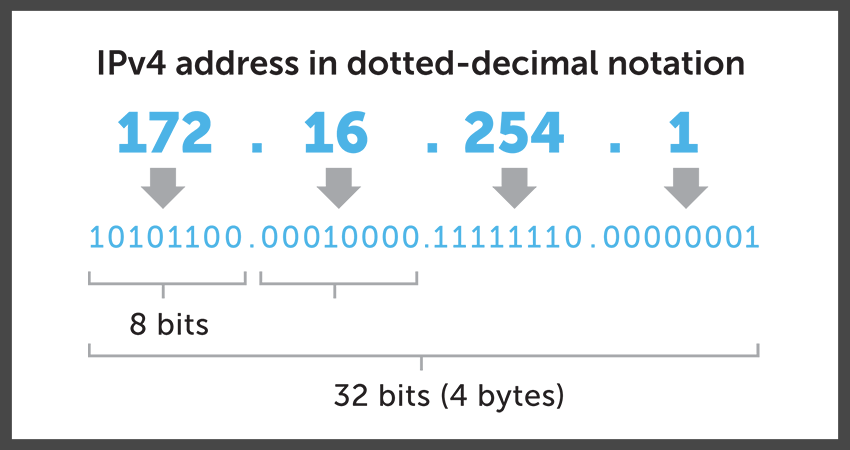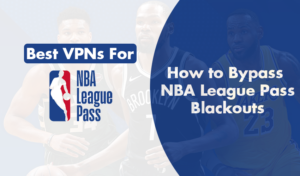IP address leaks can be quite a jigsaw puzzle to decipher, particularly for everyday web users. These leaks can pose a risk to your online privacy, making your online activities traceable. Let’s dive into the depth of ip address leaks, understanding what happens when your IP is leaked and the preventive measures you can undertake.
Decoding the Concept of IP Address Leak

An IP address leak, in its simplest form, transpires when your real IP address, which should be concealed, gets revealed. This phenomenon is intrinsically linked to Virtual Private Networks (VPN) that are designed to mask your original IP address with the VPN server’s IP address.
The core function of a VPN is to render you untraceable online, but sometimes, things can go haywire, and your original IP address or DNS server’s IP address is exposed even when connected to the VPN server. In such scenarios, you’re faced with an ip address leak.
Understanding IP Addresses
Devices connected to your home network, such as your desktop, laptop, smartphone, or tablet, usually have two types of IP addresses – private and public. The private IP address facilitates communication between devices over your home network, while the public IP address is used to connect to the internet.
IP addresses can be of two kinds – IPv4 and IPv6. IPv4 addresses consist of four numbers, ranging from 0 to 255, separated by periods. On the flip side, IPv6 addresses are made up of eight groups of four hexadecimal digits, separated by colons.
IPV4: 192.168.X.X
IPV6: 2002:0de6:0001:0084:0100:9c4e:0390:7244
Risks Accompanying an IP Address Leak

If your IP address is leaked, it can potentially put your online privacy at risk. Your IP address provides your approximate location, giving away your country, state, and nearest city. Although this information might seem trivial, it can act as a stepping stone for cybercriminals to delve deeper into your personal information.
One of the significant risks that come with an ip address leak is becoming a victim of DDoS (Distributed Denial of Service) attacks, which can overload your device with traffic and render it dysfunctional.
Checking for IP Leak
To check for an IP leak, connect your VPN and visit a website like browserleaks.com. Compare the results before and after connecting the VPN. If any of the IP addresses match, then you have an ip address leak.
IPv6 Leaks

IPv6 leaks represent a security and privacy vulnerability that occurs when a user’s online activity is inadvertently exposed over the newer Internet Protocol version 6 (IPv6) while they believe they are protected by a Virtual Private Network (VPN) using the older IPv4.
The leak happens when a VPN service does not adequately support IPv6 or does not properly route IPv6 traffic through its secure tunnel, leading to a scenario where a user’s IPv6 address becomes visible to ISPs, governments, or any third-party monitoring internet traffic.

As the internet transitions from IPv4 to IPv6 due to the exhaustion of IPv4 addresses, the risk of IPv6 leaks increases. IPv6 offers a vastly larger address space, but not all VPNs have kept pace with this change, focusing only on IPv4 traffic.
Consequently, even if a VPN effectively hides a user’s IPv4 address, their IPv6 address can still leak, undermining the privacy and anonymity sought when using a VPN.
This can lead to exposure of a user’s online behavior, location, and other personal data – a significant privacy concern, particularly for individuals in regions with strict internet surveillance or those wanting to bypass geographic restrictions.
Preventing IPv6 Leaks
Preventing IPv6 leaks is crucial for maintaining online privacy and security, especially for those using VPNs. The first step is to use a VPN provider that offers full IPv6 support and ensures that all IPv6 traffic is properly routed through its secure tunnels.
If your VPN does not support IPv6, the safest measure is to disable IPv6 on your device. This can usually be done within the network settings of your operating system.
For instance, in Windows, you would uncheck the IPv6 protocol from your network adapter properties, and in macOS or Linux, you would adjust your network settings or use terminal commands to disable it.
Additionally, consider using a VPN with built-in IPv6 leak protection. These services have mechanisms that detect and block any IPv6 traffic while the VPN connection is active.
Another preventive measure is to always use the latest version of your VPN client since updates often include improved security features that address such vulnerabilities.
For added security, regularly perform IPv6 leak tests, available on various websites, to ensure your VPN is properly handling IPv6 traffic.
Enabling a kill switch feature, if your VPN offers one, can also prevent leaks by automatically disconnecting your device from the internet if the VPN connection drops unexpectedly, ensuring no data is transmitted unsecured.
DNS Leaks
DNS leaks occur when a flaw in a VPN or network configuration allows DNS queries to be sent over unsecured channels instead of through the encrypted VPN tunnel. DNS, or Domain Name System, is like the internet’s phonebook; it translates human-readable domain names (like www.example.com) into IP addresses that computers use to communicate.
When you use a VPN, all your internet traffic, including DNS requests, should be routed through the VPN’s encrypted tunnel to their DNS servers, preventing your ISP or any eavesdropper from seeing your internet activities.
However, if there’s a DNS leak, your device might send these requests outside the VPN tunnel, typically to the default DNS servers provided by your ISP. This can happen due to improper VPN configuration or network settings that override the VPN’s DNS settings.
Consequently, even though you’re connected to a VPN, your ISP can still see the websites you visit, thereby compromising your privacy and anonymity.
DNS leaks are a significant security concern because they can inadvertently expose your online activities and the fact that you’re using a VPN, which could be particularly problematic in countries with strict internet censorship or for individuals trying to avoid government surveillance.
It’s crucial to ensure that your VPN has robust DNS leak protection and to regularly check for leaks using online tools specifically designed for this purpose.
Preventing DNS Leaks
Preventing DNS leaks is a critical part of maintaining online security and privacy, especially when using a VPN. The first step in preventing DNS leaks is to choose a reliable VPN provider that offers built-in DNS leak protection. Such VPNs have their own DNS servers and ensure that all DNS requests are routed through the encrypted VPN tunnel, not just the traffic.
Another important preventive measure is to manually configure your network settings to use DNS servers that prioritize privacy, such as those provided by OpenDNS or Google Public DNS, instead of the default ISP’s DNS servers. This configuration can usually be done in the network settings of your device.
For users who are technically inclined, configuring a firewall to block all non-VPN traffic can also prevent DNS leaks. This ensures that if the VPN fails, there is no unsecured fallback to the ISP’s DNS servers.
Additionally, regularly check for DNS leaks by using online services that can detect if your DNS requests are being leaked. These services are typically free and easy to use, providing a straightforward way to test your VPN’s effectiveness.
WebRTC Leaks

WebRTC leaks are a privacy issue that occurs when a vulnerability in the WebRTC technology exposes a user’s real IP address, even when using a VPN.
WebRTC, which stands for Web Real-Time Communication, is an open-source project that provides web browsers and mobile applications with real-time communication capabilities via simple APIs. It’s used for video chatting, live streaming, and peer-to-peer sharing directly in the browser without the need for additional plugins.
The WebRTC feature is designed to discover the optimal route for connecting to other users by exchanging IP address information. However, this functionality can inadvertently reveal both the public and local IP addresses of a user’s device.
Even if a VPN is being used to mask the user’s IP address, WebRTC could still disclose the true IP through a process known as “IP address discovery.”
This issue is especially concerning because it bypasses the security provided by VPNs, potentially exposing the user’s real location and identity to websites or eavesdroppers. WebRTC leaks can affect users of popular browsers like Chrome, Firefox, Opera, and others that have WebRTC enabled by default.
To prevent WebRTC leaks, users can disable WebRTC in their browser settings, although this may affect web-based communication services. Browser extensions are also available that block WebRTC leaks without disabling the functionality altogether.
Additionally, some VPNs offer specific WebRTC leak prevention measures, so opting for a VPN that provides such features can be beneficial for those seeking complete online privacy.
Mitigating WebRTC Leaks
Mitigating WebRTC leaks involves taking steps to prevent your IP address from being exposed through your web browser’s WebRTC feature. For users who rely on VPNs for privacy, it’s crucial to address this vulnerability since a WebRTC leak can undermine the purpose of using a VPN.
One of the simplest methods to mitigate WebRTC leaks is to use a browser extension or add-on designed to block these leaks.
Extensions such as ‘WebRTC Leak Prevent’ for Chrome or ‘Disable WebRTC’ for Firefox can be installed and activated to control how WebRTC APIs are used, thus preventing your IP address from being revealed.
For those who prefer not to use an extension, it’s also possible to disable WebRTC directly in the browser settings. In Firefox, this can be done by typing `about:config` in the address bar, searching for `media.peerconnection.enabled`, and setting it to `false`.
However, Chrome and some other browsers do not offer a direct way to disable WebRTC through settings, making extensions the preferred method.
Furthermore, some VPN services have incorporated WebRTC leak prevention into their software. When choosing a VPN, look for one that specifically mentions WebRTC leak protection.
This feature ensures that the VPN application itself takes care of any potential leaks, without requiring additional browser configurations or extensions. Regularly testing your browser for WebRTC leaks using online tools can also help ensure that your measures are effective.
VPN Disconnects & Network Disruptions
VPN disconnects and network disruptions are events that can inadvertently expose a user’s real IP address, leading to privacy breaches.
These incidents occur when the VPN software unexpectedly fails or when there is a loss of connectivity that causes the VPN tunnel to drop. Without a secure tunnel, internet traffic—including the user’s actual IP address—may be routed through their Internet Service Provider (ISP), which can be monitored or logged.
Such disruptions are particularly risky when a user is actively transmitting sensitive data, as the true IP address might be revealed to any websites being accessed, or worse, to malicious entities if the connection is compromised.
This can undo the privacy and security a VPN is meant to provide, leaving users exposed and vulnerable to cyber threats or surveillance.
To mitigate the risks associated with VPN disconnects and network disruptions, a feature known as a “kill switch” is often employed.
A kill switch monitors the VPN connection and, if it detects a drop, it immediately cuts off all internet traffic to and from the device, preventing any data from leaking out over an unsecured connection.
Users should also consider a VPN that offers stable connectivity and has a good track record of uptime to minimize the chances of such disruptions. Regularly updating VPN software can also ensure better stability and security.
Conclusion
IP leaks can break the primary function of a VPN, which is to hide your real IP address and location. Therefore, it becomes crucial to understand what happens if your IP is leaked and how you can prevent it. The key to fixing IP leaks is to choose a VPN provider that doesn’t leak. It’s always better to be aware of your security status than having an illusion of security.
“Knowledge of one’s identity, one’s self, community, nation, religion, and God, is the true meaning of resurrection, while ignorance of it signifies hell.”
Elijah Muhammad
In the words of Elijah Muhammad, having knowledge of your identity (in this case, your IP address) is pivotal, and ignorance towards it signifies a disaster. So, keep checking for ip address leaks and ensure your online privacy is intact.
FAQs
What is an IP address leak and how does it occur?
An IP address leak occurs when your real IP address, which should be concealed, gets revealed. This usually happens with Virtual Private Networks (VPNs) that are designed to mask your original IP address with the VPN server’s IP address. If the VPN fails or is misconfigured, your original IP address or DNS server’s IP address may be exposed, leading to an IP address leak.
What are the risks associated with an IP address leak?
If your IP address is leaked, it can potentially put your online privacy at risk. Your IP address provides your approximate location, which can be used by cybercriminals to gain more personal information. One of the significant risks of an IP address leak is becoming a victim of DDoS (Distributed Denial of Service) attacks, which can overload your device with traffic and render it dysfunctional.
How can I prevent IPv6 and DNS leaks?
To prevent IPv6 leaks, use a VPN provider that offers full IPv6 support. If your VPN does not support IPv6, disable IPv6 on your device. For DNS leaks, choose a VPN provider that offers built-in DNS leak protection. Manually configure your network settings to use privacy-focused DNS servers, and check for DNS leaks regularly using online services. Enabling a kill switch feature can also prevent leaks by automatically disconnecting your device from the internet if the VPN connection drops.
What are WebRTC leaks and how can they be mitigated?
WebRTC leaks occur when a vulnerability in the WebRTC technology exposes a user’s real IP address, even when using a VPN. To mitigate WebRTC leaks, users can disable WebRTC in their browser settings, use browser extensions that block WebRTC leaks, or opt for a VPN that provides WebRTC leak prevention measures. Regularly testing your browser for WebRTC leaks using online tools can also help ensure that your measures are effective.





